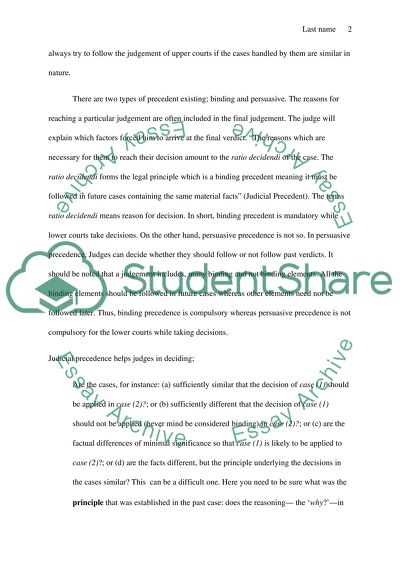Cite this document
(“Judicial precedent Essay Example | Topics and Well Written Essays - 1250 words”, n.d.)
Judicial precedent Essay Example | Topics and Well Written Essays - 1250 words. Retrieved from https://studentshare.org/english/1462046-judicial-precedent
Judicial precedent Essay Example | Topics and Well Written Essays - 1250 words. Retrieved from https://studentshare.org/english/1462046-judicial-precedent
(Judicial Precedent Essay Example | Topics and Well Written Essays - 1250 Words)
Judicial Precedent Essay Example | Topics and Well Written Essays - 1250 Words. https://studentshare.org/english/1462046-judicial-precedent.
Judicial Precedent Essay Example | Topics and Well Written Essays - 1250 Words. https://studentshare.org/english/1462046-judicial-precedent.
“Judicial Precedent Essay Example | Topics and Well Written Essays - 1250 Words”, n.d. https://studentshare.org/english/1462046-judicial-precedent.


